
Tyler Perry fans got their special delivery of a cry-fest on June 6, 2025 when he released his newest sob story, straw, on Netflix.
As the days rolled by and soaked handkerchiefs piled up across homes, netizens took to their socials to mope about the highpoints for them. The general consensus seems to be that Tyler ought to do something about the prices of handkerchiefs, perhaps get the companies to send them out for free for Perry movie releases. That would surely help.
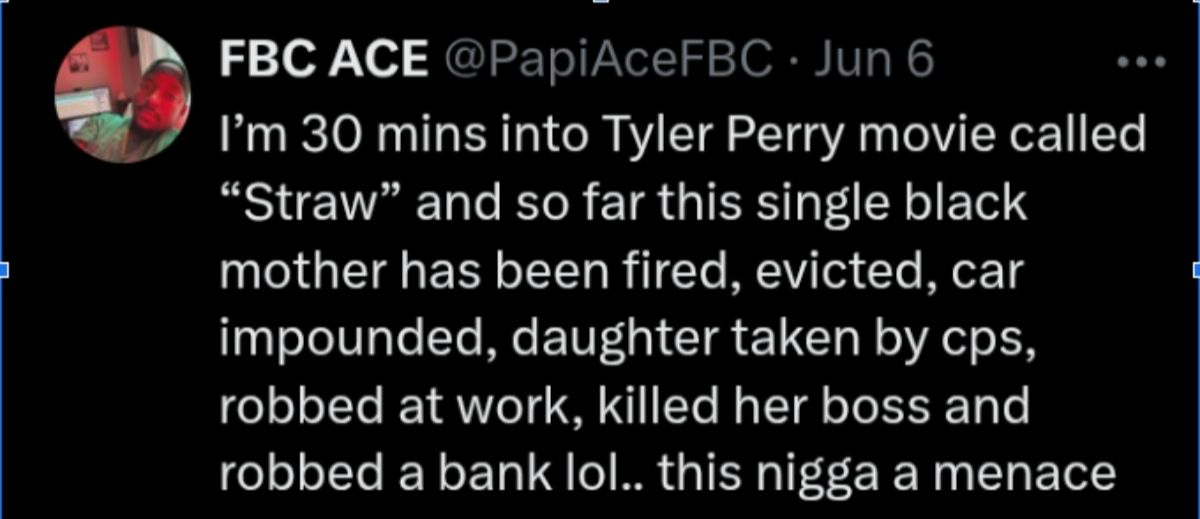
Tyler outdid himself with Straw. If fans felt distraught and torn apart, literally, by the events that sent Taraji's character down into the ocean floor in Acrimony, in Straw, Tyler Perry had the chance to slash at their tear ducts.
Fans got returns on their investments of tears. Straw takes movie goers down the oft beaten path that is the problem of financial inequality in our societies. From America to Indonesia, and back to Nigeria, poverty continues to exact costly consequences.
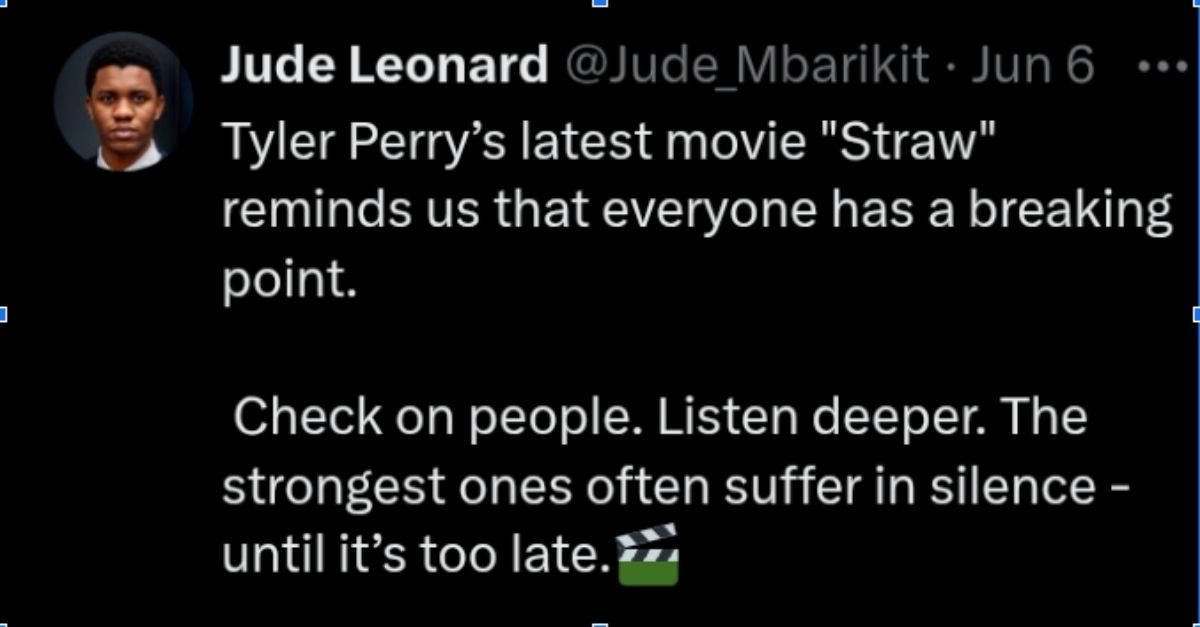
Not everyone agrees though that to teach a lesson about societal issues, you have to make people cry. As fans dabbed tears off their faces and sniff back snots, they purse their lips at their screens, angry at how much trauma one woman is allowed to take. Even if it's just a movie.
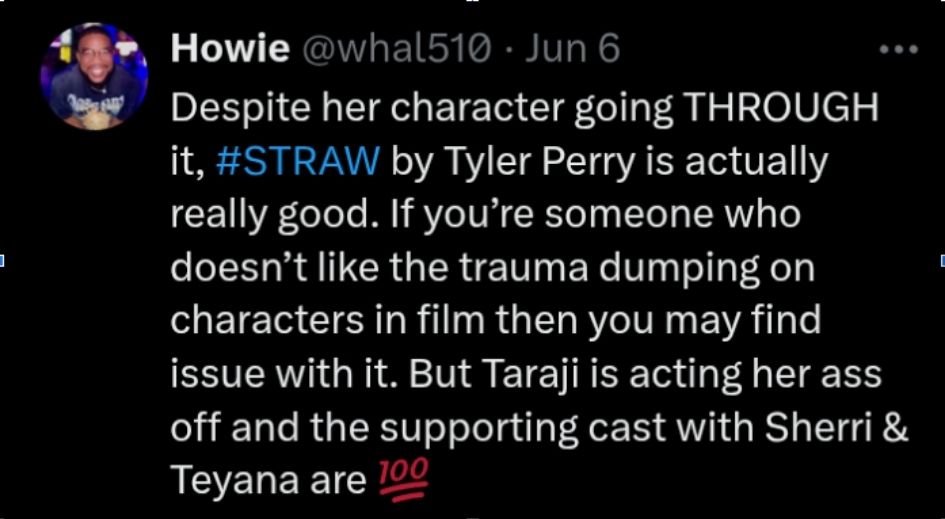
But as is usually the case with movies like this, a lot of viewers see themselves in the main character, especially women. So it may well be these folks are only expressing their personal pains, rather than merely sympathize with a fictional character. After all, it's just a movie.
This is Tyler's trademark: traumatize the already struggling woman, traumatize her even more, until she breaks in pieces. He hacked this movie trope when he gave us Acrimony. And when fans went haywire over the ending, and debates raged for weeks over who was the actual villain, Tyler saw it all. He listened, he snickered and smirked as he opened his Final Draft and began playing around with what would later become Straw.
He looked at his fans and whispered darkly, “Y'all ain't seen nothing yet. Hahaha.”
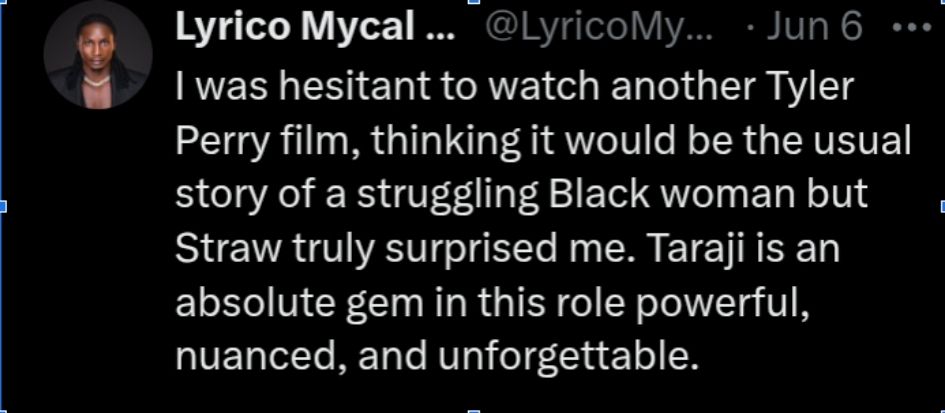
And who better to play the harried, overworked, hardy Janiya than Taraji P. Hensen? She was visceral. Taraji knows how to emote. She's the queen when it comes to embodying the human condition at its lowest, disintegrated form.
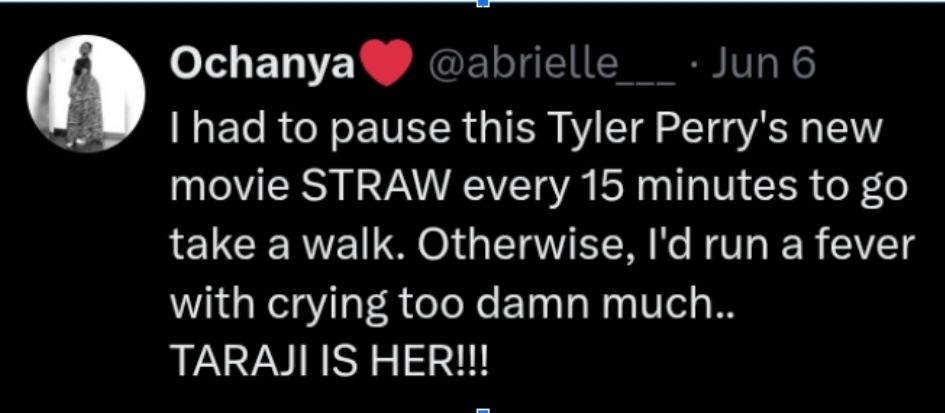
There are those who think Janiya’s character in Straw was over-the-top and less believable than the real struggling American single mother. Some even think this is because Tyler Perry isn't a good writer. Is the writing flawed, or is it just the portrayal of the main character?
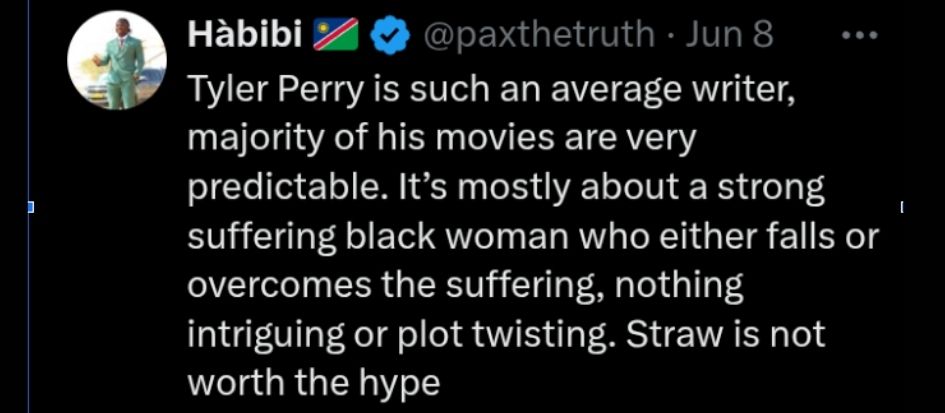
When Life Gives You Lemon, Buy a Handkerchief
It is my opinion that a good story isn't necessarily a believable one. Yes, there's some unrealism with the sequences—within the first 18 minutes or so, Janiya has been threatened with eviction, a sack at her job, and got hit by a bad cop. Some think this is all too contrived. But most people who live the reality of Janiya's life all over the world may be able to relate. This could all be what some mean when they say they're having a bad day—a slew of terrible events lumped into a few minutes before lunch break, by which time you're telling yourself, “alright, I've had enough,” and you're just about to snap.
Straw is just a regular story. But told without holding back. It is a compilation of some woman’s really bad days squeezed into a feature film, for impact. The problem is, most of us hate being vulnerable. Most of us hate admitting our pain and suffering. It makes us feel naked. As if Tyler Perry was eavesdropping on our conversations about being behind on rent, inability to pay medical bills, and how much we hate our boss at work, and how much we would appreciate it if we got a break for once.
Straw exposes all these unspoken truths about poverty, inequality and the need to band together at work, in our homes, apartment buildings, to lift each other up when we're down. Straw exposes how even something as a bank's bureaucracy contributes to hardship. Your money isn't entirely your money, if not, how come you can't take it whenever you want?
Or how having a job isn't guaranteed. Or how malevolent it is when some business policy allows a boss to hold on to your wages after firing you. When you take your time to watch this film, there's a lot to unpack.
Yet, it's a good thing black struggling women are not picking up arms to force justice out of the system. There's no shortage of lemons. We all receive our deliveries of lemons, some make lemonade, others simply sock it up, wipe their tears, and move on with life. A few like Janiya, snap. Personally, the movie should have been called Snap, rather than Straw. Janiya snapped the night before when she lost her daughter. It wasn't that she'd had enough, it was that her mental support broke. Since the movie focused on all the events after her daughter's death, not on the death itself, which would have qualified as the Straw.
Tyler Perry did something he didn't do in Acrimony—he showed fans the edge of the cliff, pushed them off, and at the last minute, shoved a padded mat to prevent injuries. Fans got a flashback that showed her daughter Aria had died the previous night, and all we've been watching is her reaction to the news. Also, that ending made up for all the tears shed.
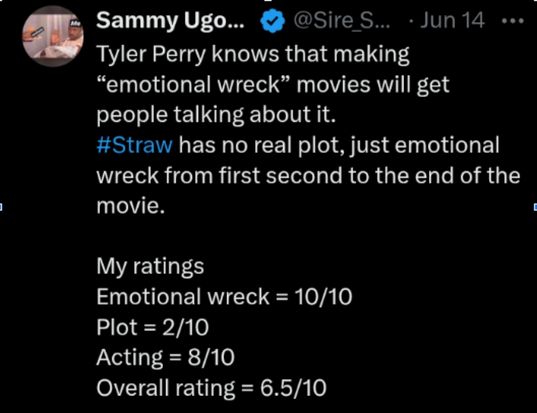
Final Takes
Critics slam Straw for Perry’s usual pitfalls: heavy-handed messaging, over-the-top melodrama, and cluttered plotting. The narrative piles on too many crises, making it feel like a soap opera on steroids. The Guardian calls it a “punishing” exercise in “misogynoir,” arguing Perry leans too hard into traumatizing Black women without fully understanding the issues.
Without spoiling too much, the big reveal about Janiyah’s daughter, Aria, shocked viewers (Henson herself was floored reading the script). Some, like Entertainment Weekly, praise its emotional gut-punch, but others, like ScreenRant, call it a “cop-out” that undermines tension and feels manipulative.
The cinematography, by Justyn Moro, is described as serviceable but uninspired, missing a chance to elevate the story visually.
Straw is a mixed bag, but it’s undeniably compelling. Henson’s performance alone makes it worth watching—she carries the film’s messy, overwrought narrative with a conviction that’s impossible to ignore. Perry’s strength is his ability to tap into raw, relatable emotions, especially for those who feel unseen or crushed by systemic pressures. The film’s exploration of mental health and poverty hits hard, and its global popularity suggests it’s speaking to a universal sense of being “at the end of your rope.”
If you’re into intense, character-driven thrillers and can handle some narrative messiness, it’s a solid watch. Just don’t expect subtlety. Grab some tissues, as one reviewer’s partner suggested, and dive in on Netflix. What do you think—have you seen it yet, or are you planning to?

